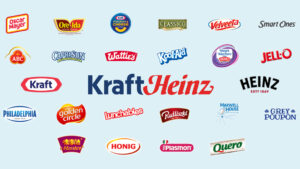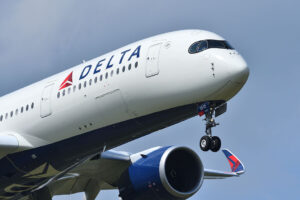Investor sentiment in the U.S. hotel industry took a hit on Monday, with Goldman Sachs sharply lowering its RevPAR growth forecast amid signals of weakening consumer demand, rising economic uncertainty, and industry challenges spilling over from the airline sector.
Revised Outlook for Hotel Performance
Goldman Sachs now expects U.S. hotels’ average revenue per available room (RevPAR) to grow a modest 0.4% in 2025, a significant downgrade from its previous estimate of 1.4%. The bank’s revised forecast does not factor in the risk of a recession—which history tells us could trigger further declines, potentially driving RevPAR down by double digits.
This pessimistic stance has led Goldman analysts to downgrade key hotel stocks:
-
Hyatt Hotels (H) was lowered to “sell.”
-
Marriott International (MAR) and Hilton Worldwide (HLT) were cut to “neutral.”
In response, shares of Hyatt fell 3% on Monday, while Marriott and Hilton experienced declines of roughly 1% each, even as the broader market posted gains.
Weighing in on Airline Industry and Broader Travel Demand
A significant drag on the hotel sector has been the downward revision of forecasts by major U.S. airlines including Delta Air Lines (DAL), Southwest Airlines (LUV), and American Airlines (AAL). Weaker travel demand, highlighted by these airlines pulling back on their first-quarter projections, has heightened concerns that reduced passenger loads could dampen overall travel activity—and by extension, hotel occupancy rates.
CEO comments from these airlines have further underscored the caution permeating the market:
-
Delta’s CEO Ed Bastian recently noted that consumers are “acting as if we’re going [into] a recession.”
These remarks have not only impacted airline valuations but have also raised broader concerns in the travel and lodging sectors.
Macro Outlook and Sector Dynamics
Amid rising tariff fears and persistent economic uncertainty, investor focus has increasingly turned to reliable macro indicators and historical sector performance to inform their decisions. Upcoming economic data will be critical in determining the pace of recovery or further contraction in consumer spending.
For real-time macroeconomic updates and events that could affect travel demand:
- Up/Down Grades by Company API – This API provides data on analyst upgrades and downgrades. It directly relates to Goldman Sachs’ move to downgrade Hyatt to “sell” and shift ratings for Marriott and Hilton, giving readers real-time insight into how analysts are adjusting their recommendations in the sector.
- Price Target Summary API – This API aggregates the price targets from various analysts, which is especially pertinent as Goldman Sachs lowered its outlook. It helps investors gauge the revised expectations for U.S. hotel stocks and understand the broader impact on valuation metrics.
What This Means for Investors
Goldman Sachs’s adjusted outlook is a clear signal that the hotel industry is bracing for more headwinds:
-
Consumer Caution: With general sentiment turning risk-averse, discretionary spending on travel may slow.
-
Cost Pressures: Hotels could face margin compression, particularly if a recession materializes.
-
Valuation Challenges: As return expectations have started turning negative, investors may need to reassess the long-term growth potential of these stocks.
Final Thoughts
While the hotel segment has historically demonstrated resilience in the face of economic shocks, the combination of slowing demand, cautious airline forecasts, and broader macro uncertainties could mean that near-term performance will remain muted. Investors should stay alert to upcoming economic indicators and sector trends to navigate this challenging environment.




